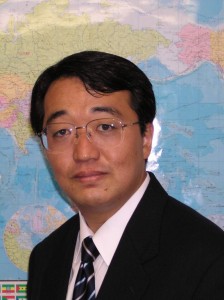信教の自由と人権のための雑誌「BITTER WINTER」がインターネット上で発表した家庭連合関係の記事を紹介する連載。このサイトの運営者であるマッシモ・イントロヴィニエ氏はイタリアの宗教社会学者で、1988年にヨーロッパの宗教学者たちによって構成される「新宗教研究センター(CESNUR)」を設立し、その代表理事を務めている。マッシモ・イントロヴィニエ氏から特別に許可をいただいて、私の個人ブログに日本語訳を転載させていただいている。
日本:弁護士、ディプログラミング、そして統一教会の解散請求
ケース3:日本基督教団(UCCJ)との協力
06/14/2025
世俗的な左派系反カルト弁護士は、ディプログラマーとして活動する基督教牧師たちと協力していた。
パトリシア・デュバル
7本の記事の3本目
 日本基督教団の教会。
日本基督教団の教会。
山口広弁護士は、反統一教会ネットワーク「全国霊感商法対策弁護士連絡会(全国弁連)」の主要な創設者であり、1987年5月の設立時に事務局長に任命された。
彼の経歴から見て取れることは、急進的な左翼的志向(共産党に近い社会党系の一派)への忠誠心があること、統一教会への献金に対する批判を長年続けていること、そしてそのために消費者問題関連の機関にも長年関与してきたことである。
また、彼は早い段階から、「救出」と称して脱会説得を行う牧師たちと連絡を取り、協力関係を築いていた。
1987年5月から7月に発行された保守系の月刊誌『ゼンボウ』に掲載された記事によれば、「霊感商法」批判の仕組みの出発点は、1986年に設立された「統一協会対策委員会」であり、この委員会は1981年に社会党の支援を受けて設立された「社会文化法律センター」内に置かれていた。
1987年2月「霊感商法被害救済担当弁護士連絡会(被害弁連)」の発足に際して記者会見を行った弁護士3人(山口広、伊藤和夫、東澤靖)のうち、山口広と東澤靖の2名は、社会文化法律センターのメンバーでもあった。
被害弁連は東京に拠点を置く地域組織であったが、その後、1987年5月に発足した「全国霊感商法対策弁護士連絡会(全国弁連)」に包含され、全国的組織となった。
1987年1月31日付の社会文化法律センターの機関紙『センターニュース』において、弁護士・山口広は次のように呼びかけた。
「言うまでもなく、『霊感商法』とは、統一協会が組織ぐるみで経済活動と称し、壺、多宝塔を『霊』を引き合いに、数百万円で売りつけるというもので、そこで得た金は、統一協会や勝共連合の国家秘密法制定[即ち、スパイ防止法]制定の策動の資金に流れている。(※勝共連合は、文鮮明師によって1968年に創設された団体である。『国家秘密法』とは、スパイ防止法に反対する人々がこの法案に対して用いた呼称。)これらの被害の実情や資金の流れは、『朝日ジャーナル』や『朝日新聞』などで再三報道されている通りである。さて、この度霊感商法問題に取り組んできた社文の会員も参加し、『霊感商法被害救済弁護連絡会』(仮称)が結成されることになったので、この場を借りて、会員の皆さんの参加を呼び掛ける次第である。」
 山口広弁護士。スクリーンショット。
山口広弁護士。スクリーンショット。
これと並行して1986年、弁護士らによる「統一協会対策委員会」の設立を受けて、すでに統一教会信者の「救出」に関与していた日本基督教団(UCCJ)の牧師たちが、10月2日・3日に「統一原理問題全国連絡会」を結成した。その数年後、弁護士と牧師たちは協力関係を公然と発表した。
「統一原理問題全国連絡会」(UCCJ牧師を含む)は、1991年10月21日と22日に、ある教会の会議室で2日間の集会を行った。その会合で、日本基督教団・西尾教会の杉本誠牧師は、「青春を返せ訴訟」こそが統一教会に対抗する最も効果的な手段であると述べた。
「青春を返せ訴訟」とは、弁護士ネットワークが統一教会を壊滅させることを目的に起こした、一連の訴訟を指す(これは彼ら自身が明言している)。これらの訴訟では、統一教会に入信し、牧師たちが「救出」と称する暴力的なディプログラミングによって信仰を放棄させられた若者たちが、監禁から解放されるために教会を訴え、損害賠償を請求した。
最初の「青春を返せ訴訟」は札幌で起こされ、原告は1986年から1992年にかけて脱会させられた若者20名だった。20名の原告は、統一教会による「違法な布教活動」により金銭的損害と精神的苦痛を被ったとして、不法行為に基づく損害賠償を求めた。
これは札幌地方裁判所で行われた最初の「青春を返せ訴訟」である。裁判記録によると、原告20人のうち16人が実際に強制的脱会説得を受けていた。彼らはアパートやホテルに拉致・監禁され、特別に用意された部屋で脱会説得を受けたのちに教会を離れていた。
札幌地方裁判所は、原告側勝訴の判決を下した。同裁判所は、統一教会の活動、特に献金勧誘について、「社会通念に照らして見た場合」、「不当な目的」に基づくと認定した。その理由として、原告らは被告団体の教義における救いを求めるよう、組織的かつ計画的に教育されたと指摘した。
つまり、裁判所は、布教活動そのものや信仰への改宗が「社会通念」を脅かし、「不当な目的」に該当すると判断したのである。
この判決は、献金を求めた統一教会信者の「宗教または信条の自由」を露骨に侵害するものであったが、札幌高等裁判所によって維持された。その後最高裁判所は上告を棄却したため、札幌高裁の判決は確定された。
 札幌地方裁判所と札幌高等裁判所(出典:X)
札幌地方裁判所と札幌高等裁判所(出典:X)
この後、同じく札幌地方裁判所で、さらに2件の「青春を返せ訴訟」が続き、いずれも同様の判決が下された。
・一件目は原告63名、そのうち40名が元信者で、残り23名は元信者の親族であった。
・二件目は原告40名、そのうち16名が元信者で、残り24名は元信者の親族や友人であった。
これらの訴訟はすべて、ディプログラミングによって発生した原告たちを基盤として成り立っていたことが明らかである。
この3件の札幌での「青春を返せ訴訟」は、政府が教会の宗教法人解散を請求するにあたり根拠とした、32件の裁判の一部であった。加えて、長年にわたって提起され、判決が下された5件の裁判も含まれていた。一部の「青春を返せ訴訟」は和解に至っているにも関わらず、それらも解散請求の理由に含まれていた。
以上のことから、1991年に日本基督教団の教会で行われた会合で、牧師たちが「青春を返せ訴訟」は、統一教会に対抗する最も効果的な手段であると主張した背景が理解できる。
1991年10月21日と22日に行われたこの会合では、全国弁連から山口広弁護士が講演者として招かれた。彼は、このディプログラミングを受けた若者たちの訴訟における、中心的な弁護士であった。彼は以下のようにコメントした。
「この訴訟は、ジャブのように統一教会に効いている。」
1991年11月16日付『教団新報』(日本基督教団の機関紙)に掲載された記事によれば、会合の参加者たちは、統一教会の「破壊」を目標に、今後も「青春を返せ訴訟」を中心に、「救出」活動を着実に継続し取り組むという方針で一致したという。彼らの目的がこれ以上ないほど明確に示されたものであった。
以上の記事のオリジナルは以下のURLで見ることができます。
 小出氏が拉致された当時、勤務していた一心病院(出典:X)
小出氏が拉致された当時、勤務していた一心病院(出典:X) ディプログラマーの松永堡智(やすとも)牧師。出典:X
ディプログラマーの松永堡智(やすとも)牧師。出典:X 全国弁連所属の弁護士、紀藤正樹氏(出典:X)
全国弁連所属の弁護士、紀藤正樹氏(出典:X) 紀藤正樹弁護士(左)と山口広弁護士(右)。いずれも「全国霊感商法対策弁護士連絡会」(全国弁連)の主要メンバー。スクリーンショットより。
紀藤正樹弁護士(左)と山口広弁護士(右)。いずれも「全国霊感商法対策弁護士連絡会」(全国弁連)の主要メンバー。スクリーンショットより。 テッド・パトリック。ディプログラミングという違法行為を発明したアメリカの反カルト活動家。Xより。
テッド・パトリック。ディプログラミングという違法行為を発明したアメリカの反カルト活動家。Xより。 札幌地方裁判所が所在する建物。
札幌地方裁判所が所在する建物。 鈴木エイト氏。Xより。
鈴木エイト氏。Xより。 鈴木氏による反カルト講演会のポスター。「統一教会の多摩市進出NO! 鈴木エイトが語る統一教会との格闘、22年」
鈴木氏による反カルト講演会のポスター。「統一教会の多摩市進出NO! 鈴木エイトが語る統一教会との格闘、22年」 東京地方裁判所。
東京地方裁判所。 解散命令後の記者会見で記者団の質問に答える日本の家庭連合の田中富広会長と法務局の近藤徳茂氏。スクリーンショット。
解散命令後の記者会見で記者団の質問に答える日本の家庭連合の田中富広会長と法務局の近藤徳茂氏。スクリーンショット。 2024年8月4日、福岡で宗教の自由を求めて行進する統一教会/家庭連合のメンバー。
2024年8月4日、福岡で宗教の自由を求めて行進する統一教会/家庭連合のメンバー。 日本の最高裁判所。
日本の最高裁判所。 2009年以前のいわゆる「霊感商法」:統一教会の日本人信者(教会自体ではなく)が、幸運をもたらすと主張して法外な値段で販売していたと非難された品物。
2009年以前のいわゆる「霊感商法」:統一教会の日本人信者(教会自体ではなく)が、幸運をもたらすと主張して法外な値段で販売していたと非難された品物。 解散命令後の記者会見に臨む日本の世界平和統一家庭連合(旧統一教会)の田中富広会長。
解散命令後の記者会見に臨む日本の世界平和統一家庭連合(旧統一教会)の田中富広会長。 全国霊感商法対策弁護士連絡会のリーダーの一人、紀藤正樹弁護士。スクリーンショット。
全国霊感商法対策弁護士連絡会のリーダーの一人、紀藤正樹弁護士。スクリーンショット。 ワシントンDCで開催された「2025年国際宗教自由サミット」で日本における宗教の自由の危機について論じるパトリシア・デュバル氏
ワシントンDCで開催された「2025年国際宗教自由サミット」で日本における宗教の自由の危機について論じるパトリシア・デュバル氏 東京地方裁判所の外観:
東京地方裁判所の外観: 訴訟とディプログラミングの件数。
訴訟とディプログラミングの件数。 解散命令後の反統一教会弁護士による記者会見。スクリーンショット。
解散命令後の反統一教会弁護士による記者会見。スクリーンショット。 静岡における国際勝共連合の初期の活動、1969 年 8 月。出典: tparents.org。
静岡における国際勝共連合の初期の活動、1969 年 8 月。出典: tparents.org。 安倍晋三氏(1954-2022年)の葬儀に臨む岸田文雄首相(当時)。スクリーンショット。
安倍晋三氏(1954-2022年)の葬儀に臨む岸田文雄首相(当時)。スクリーンショット。 2025年に韓国で行われた家庭連合の天苑宮天一聖殿の入宮式。Facebookより。
2025年に韓国で行われた家庭連合の天苑宮天一聖殿の入宮式。Facebookより。 文鮮明師と、その妻であり後継者である韓鶴子博士。Xより。
文鮮明師と、その妻であり後継者である韓鶴子博士。Xより。 ポーランドで開催された家庭連合のイベント。出典:FFWPUミッション・サポート。
ポーランドで開催された家庭連合のイベント。出典:FFWPUミッション・サポート。 子供たちに「カルトの悪」について教え込む中国の女性警官。これらの活動は通常、中国反邪教協会と共同で行われている。Weiboより。
子供たちに「カルトの悪」について教え込む中国の女性警官。これらの活動は通常、中国反邪教協会と共同で行われている。Weiboより。 2025年3月に中国反邪教協会が統一教会に対して制作したドキュメンタリーより
2025年3月に中国反邪教協会が統一教会に対して制作したドキュメンタリーより